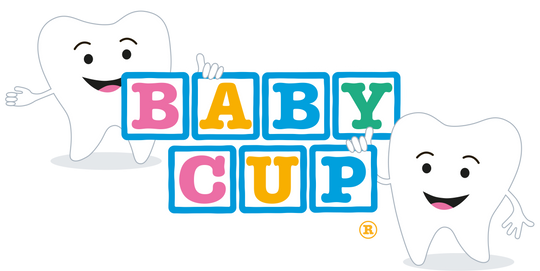Develop Your Baby’s Fine Motor Skills with Babycup First Cup
Develop Your Baby’s Fine Motor Skills with Babycup First Cup
‘Fine motor skills’: another of those parenting phrases that we hear a lot about. We know it’s important, we know it’s developing. But what exactly is it?
In short, this particular skill set involves the use of the smaller muscles of the hands and, to make your little one’s life easier, it should be trained from an early age. Encouraging your baby to enjoy things which stimulate these little muscles, such as building with Duplo, opening and closing boxes, drawing and drinking from a Babycup First Cup will significantly improve task outcomes in no time at all.
Why are fine motor skills important?
Honed fine motor skills are essential for performing every day tasks we, as adults, might take for granted. Getting dressed, feeding oneself, writing or drawing, IT use and basic hygiene such as cleaning teeth, brushing hair and using the toilet are all examples of times when fine motor skills are needed.
Of course, a very young child is not ready to do any of these things by themselves, but it is the training of the hand muscles during these early years that make it possible when they are ready.

How can you help develop your baby’s fine motor skills?
All parents know that young ones can become quite frustrated when they are itching to get into independent play and thinking, so anything we can do to help speed up the process that gets them there will come as a welcome tip! Training up fine motor skills can be great fun and will help your children on their way to doing things all by themselves.
7 – 12 months
At about 7 months old, your baby will be ready to start working on their fine motor skills. This coincides perfectly with the recommended age to introduce solid food. Baby led weaning with finger foods and a drink in a Babycup First Cup is a great way to start working those fine motor skills into daily life.
Babies will also enjoy starting to explore and grasp smaller toys at this age (always supervised, and never anything that presents a choke hazard), which will help them practice pinch and grasp techniques.
Soon enough, your baby will be mobile and ready to grab everything they can reach when they pull themselves up to standing by shelves or tables. Because of this, you’ll need to start being wary of what you leave within their reach! Try putting things they will love finding in new and exciting places. This will tempt them to reach out and grab what’s on offer, again helping to develop these essential skills.
Your baby will no doubt love reading books with you already and they may show an interest in turning the pages. They will find this easier with board books than paper, so stock up on those if you can! Simply pointing at the pictures is good training too.
If you feel your baby is ready to try spoon feeding themselves, by all means let them try! It will be messy, but fun and excellent for those fine motor skills. Keep your Babycup First Cup to hand for sips of water and another ideal tool, perfectly suited to little hands, to practice gripping and holding.

12 – 24 months
Once your baby reaches the age of one, they’ll be well on their way with their fine motor skills – but there’s still a lot to learn! So keep encouraging them with games chosen to help. Blowing bubbles will invite lots of finger pointing (and giggles!), finger painting is fun for all the family and building towers with blocks will be taken to a new level.
Now is the perfect time to introduce rolling, throwing and catching balls of all shapes and sizes, for a bit of physical exercise too! And playing with all sorts of musical instruments will probably be of great interest, and ideal of getting those hands moving.
As summer approaches, you may feel brave enough to tackle some water play too. The inclusion of pouring water and searching for objects makes for fantastic fine motor skill practice.
Keep up with drawing, painting, page turning and baby-led feeding too, with spoons and finger foods. The more fine motor skill activities you teach your toddler, the better!
